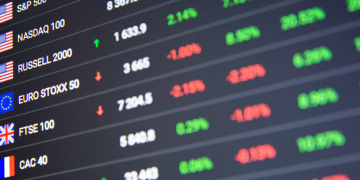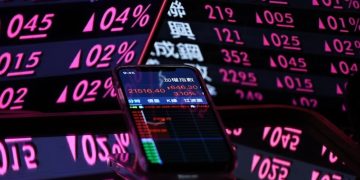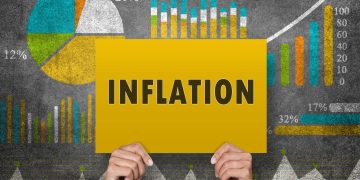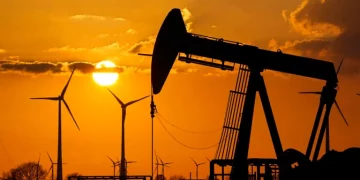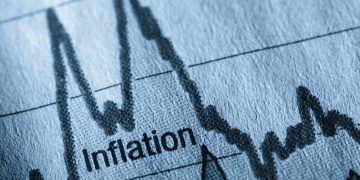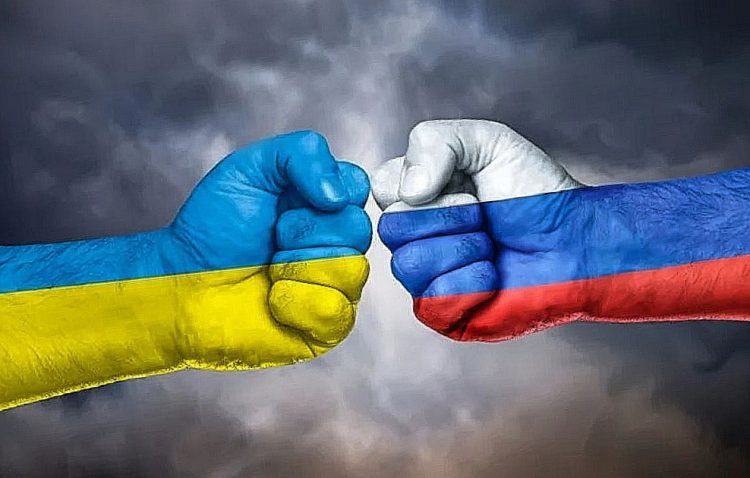Introduction
The Russia-Ukraine conflict, which escalated into a full-scale war in February 2022, has become one of the most significant geopolitical events of the 21st century. Beyond its humanitarian, political, and military implications, the conflict has had profound economic consequences, particularly for global capital flows and investment strategies. As Western sanctions on Russia intensify and global supply chains are disrupted, multinational companies, investors, and policymakers are being forced to reassess their strategies in response to rising geopolitical risks.
The conflict has disrupted energy supplies, triggered inflationary pressures, and heightened concerns about the security of investments in key regions. The ongoing war has also spotlighted the strategic importance of countries’ political alignment, leading to shifts in global investment patterns, with some nations becoming less attractive for capital inflows, while others—particularly in Asia and the Middle East—have gained prominence.
This article explores the ways in which the Russia-Ukraine conflict has reshaped global capital flows and how multinational companies and institutional investors are adjusting their investment strategies in light of these new geopolitical risks. We will examine the direct and indirect impacts on investment landscapes, including the effects on energy markets, trade routes, financial markets, and the shift in global investment patterns.
1. The Geopolitical Backdrop: Understanding the Russia-Ukraine Conflict
A. The Roots of the Conflict
The roots of the Russia-Ukraine conflict lie deep in historical, political, and cultural tensions. Ukraine, which gained independence from the Soviet Union in 1991, has long been a point of contention between Russia and the West. Russia’s desire to maintain influence over Ukraine, particularly in the context of NATO’s eastward expansion and Ukraine’s increasing ties to Europe, was a key factor leading to the 2014 annexation of Crimea and the subsequent conflict in Eastern Ukraine.
The situation escalated dramatically in 2022 when Russia launched a large-scale invasion of Ukraine. This invasion was met with widespread condemnation from Western countries, including the European Union, the United States, and NATO allies. In response, these nations imposed severe economic sanctions on Russia, which included targeting its banking sector, energy exports, and major corporations. The war has led to massive displacement of people, significant loss of life, and widespread destruction of infrastructure, exacerbating an already fragile global economic recovery from the COVID-19 pandemic.
B. The Impact of Sanctions and Counter-Sanctions
The economic sanctions imposed on Russia have had a profound impact on global markets, disrupting trade in critical commodities, including oil, gas, metals, and agricultural products. Russia’s response to these sanctions, including cutting off natural gas supplies to Europe and redirecting trade to non-Western countries, has further complicated the global economic landscape. The sanctions have led to an immediate reshaping of the global economic order, particularly in the energy sector, where countries are scrambling to find alternative sources of oil and gas.
2. The Impact on Global Capital Flows
A. Disruption of Energy Markets
One of the most significant economic consequences of the Russia-Ukraine conflict has been the disruption of global energy markets. Europe, which had been heavily reliant on Russian energy exports, has been particularly affected by the loss of access to cheap Russian natural gas and oil. This has forced European countries to seek alternative energy suppliers, including liquefied natural gas (LNG) from the United States, Qatar, and other regions, as well as increasing reliance on renewable energy sources.
The surge in energy prices has led to global inflationary pressures, straining the purchasing power of consumers and businesses alike. This inflation has spurred central banks around the world to tighten monetary policies, leading to rising interest rates. These macroeconomic changes have significant implications for capital flows:
- Capital Flight from Emerging Markets: The rising energy prices and global inflation have led to capital flight from emerging markets, particularly those dependent on energy imports. Investors, concerned about the long-term stability of these markets, have sought safer assets, leading to currency depreciation in many emerging market economies and a reduction in foreign direct investment (FDI).
- Energy Investment Surge: At the same time, there has been a surge in investment in energy infrastructure, particularly in regions outside of Russia and Europe. For example, energy companies are increasing their investments in the Middle East, North Africa, and the United States, where there is more secure access to oil and gas supplies. This has led to an increase in capital inflows to these regions, as investors seek to capitalize on the high demand for energy resources.
B. Shift in Investment to Safe-Haven Assets
In times of geopolitical uncertainty, investors tend to flock to safe-haven assets, such as gold, U.S. Treasury bonds, and other low-risk instruments. The Russia-Ukraine conflict has led to significant volatility in global financial markets, with stocks and bonds in emerging markets experiencing large sell-offs. As a result, investors have increasingly turned to safe-haven assets, which has driven capital inflows into the U.S. dollar, pushing up the value of the dollar against many other currencies.
- Diversification of Currency Reserves: In response to the geopolitical risk of having too much reliance on the U.S. dollar, some countries, particularly in Asia and the Middle East, have begun to diversify their foreign exchange reserves away from the dollar. This has led to a shift in global capital flows, with greater interest in alternative currencies like the Chinese yuan and gold as reserves for foreign governments and private investors alike.
- Increased Demand for Commodities: The conflict has also led to increased demand for commodities like precious metals, agricultural products, and industrial metals. The war has disrupted the supply of key commodities, leading to price hikes and heightened interest from investors seeking to hedge against inflation and economic instability.
C. Changes in Global Investment Patterns
As geopolitical tensions between Russia and the West continue, multinational companies and investors are being forced to rethink their investment strategies. The heightened risk of supply chain disruptions, trade restrictions, and sanctions has caused many investors to reconsider their exposure to certain regions, particularly Russia and Eastern Europe.
- Reallocating Investment: Companies are increasingly looking to shift investment away from Russia and neighboring countries. Multinationals, particularly in sectors like technology, manufacturing, and finance, are seeking to reallocate capital to more stable regions. Countries in Asia (particularly China and India), the Middle East, and Latin America are becoming more attractive for foreign investment, as these regions remain relatively unaffected by the sanctions on Russia and offer new opportunities for economic growth.
- Shifting Focus to Emerging Markets: As traditional European and U.S. markets face higher geopolitical risks and slower growth, investors are turning their attention to emerging markets that are seen as offering higher returns, despite the potential for volatility. Asia, in particular, is benefiting from this shift, with China and India receiving increased capital flows in sectors like technology, infrastructure, and energy.
D. Impact on Foreign Direct Investment (FDI)
The ongoing conflict has had a significant impact on foreign direct investment. As investors become more risk-averse, there has been a reduction in FDI in regions directly affected by the war, particularly in Eastern Europe and Russia. At the same time, countries that are perceived as neutral or stable, such as those in Southeast Asia and the Gulf Cooperation Council (GCC) countries, are seeing a rise in FDI inflows.
- Regional Shifts in FDI: With the disruption in trade routes and increased risks associated with investing in Europe and Russia, multinational corporations are shifting their production and operations to other regions, such as Asia and the Middle East. The growing focus on energy diversification, as well as the need for technological innovation, is further driving investment in these regions.
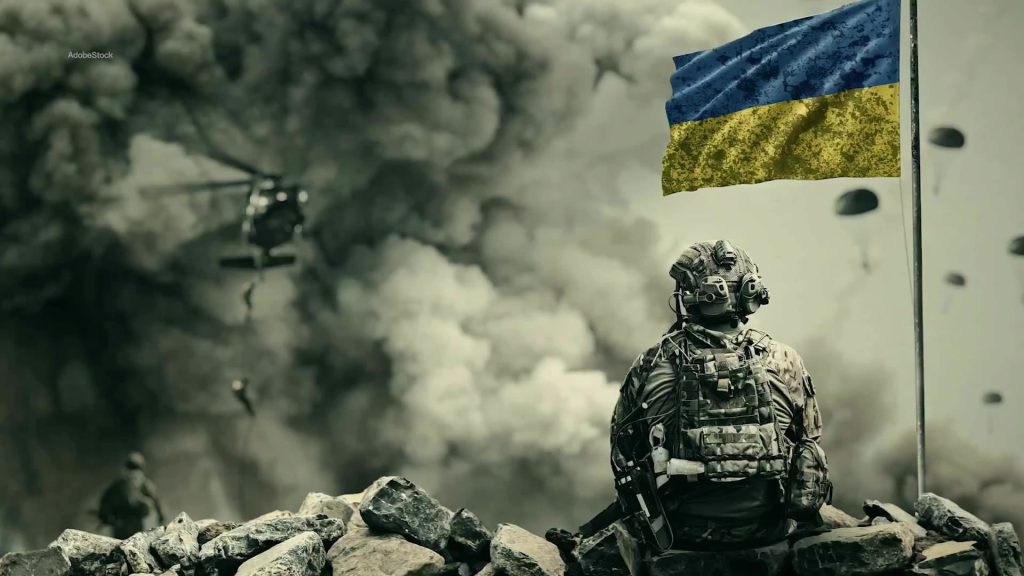
3. Multinational Investment Strategies: Adapting to Geopolitical Risks
A. Hedging Geopolitical Risk
Given the unpredictability of the geopolitical landscape, multinational companies are increasingly focused on risk mitigation strategies to safeguard their investments. One way companies are adapting is by hedging geopolitical risks through geographic diversification. By spreading their operations across multiple regions, companies can reduce their exposure to any single country’s political or economic instability.
- Supply Chain Resilience: In response to disruptions caused by the Russia-Ukraine conflict, companies are focusing on building more resilient supply chains. This includes diversifying their suppliers, increasing inventories, and investing in supply chain technologies that allow for better tracking and forecasting of potential disruptions.
- Energy Security: Given the volatility in global energy markets, companies are increasingly investing in alternative energy sources and energy storage solutions. Firms are also securing long-term contracts with energy suppliers in regions less affected by the conflict, such as the U.S. and the Middle East.
B. ESG Investing in a Geopolitical Context
The ongoing geopolitical tensions are also pushing investors to reconsider their Environmental, Social, and Governance (ESG) strategies. While many companies have focused on investing in renewable energy and sustainable practices, the conflict has highlighted the importance of energy security and geopolitical risk as key components of long-term investment strategies.
- Renewable Energy Investments: The crisis has accelerated investment in renewable energy sources, as governments and companies seek to reduce their dependence on Russian fossil fuels. Investment in solar, wind, and nuclear energy is expected to grow significantly in the coming years as countries seek to achieve energy independence.
- Diversification of Supply Chains: Companies are also paying more attention to the social and governance aspects of their supply chains, ensuring that their suppliers and partners are not vulnerable to political instability. Governance practices that prioritize transparency, anti-corruption, and resilience to external shocks are becoming increasingly important to investors.
4. Conclusion: A New Era of Geopolitical Risk
The ongoing Russia-Ukraine conflict has significantly reshaped the global investment landscape, leading to shifts in capital flows, investment patterns, and multinational strategies. Geopolitical risk, once an abstract concern for many investors, has become an immediate and pressing reality. The crisis has demonstrated how quickly political events can disrupt global supply chains, financial markets, and investment strategies.
In the face of heightened uncertainty, investors and multinational companies must adapt by diversifying their portfolios, hedging risks, and focusing on long-term resilience. The energy transition, geopolitical realignment, and evolving trade routes will continue to shape investment decisions in the years to come. By understanding the evolving nature of geopolitical risks, investors can better navigate the complexities of this new economic and political reality, ensuring that they are prepared for the challenges and opportunities ahead.



















